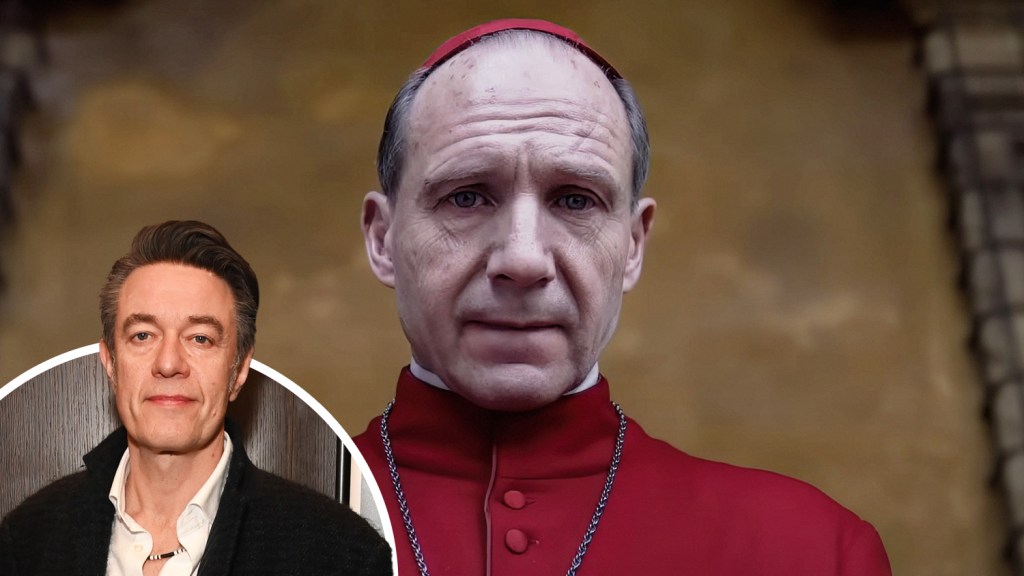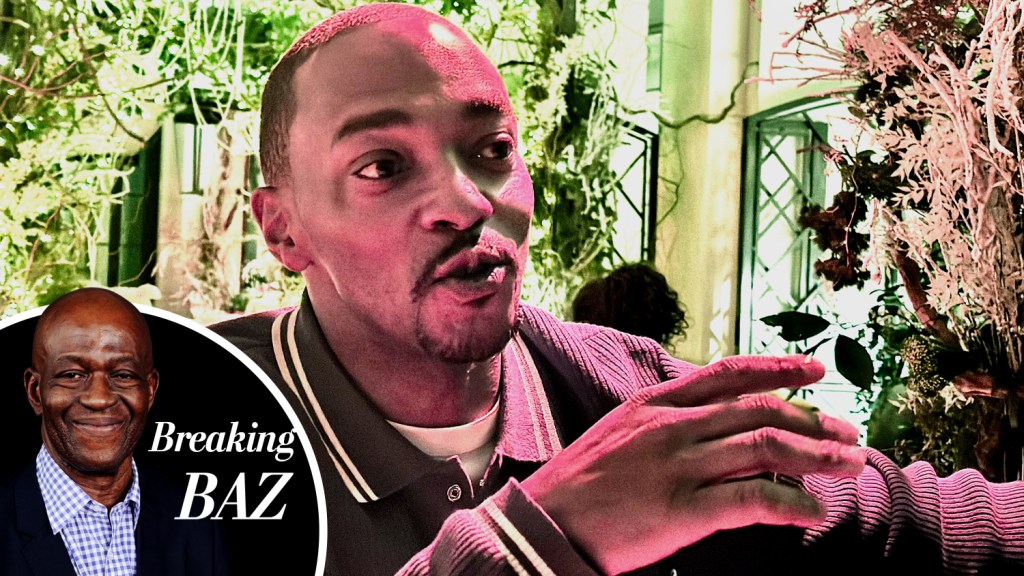Peter Straughan wasn’t exactly walking around with his cell phone in hand to hear if the movie academy was going to acknowledge him for adapting Conclave.
With the film earning nearly $38 million in theaters before Focus Features moved it to Peacock, Straughan had some concerns about the thriller finding an audience. “I mean, obviously on paper it doesn’t look like box office gold … middle aged men in a room talking,” Straughan told Deadline. “You wouldn’t think that was going to necessarily sort of catch fire, but then it did. And I have to say, one thing that I’m so thrilled about really is that I keep finding young people who have really connected with it.”
Based on Robert Harris’s bestseller of the same name, Conclave follows one of the world’s most secretive and ancient events — selecting the new pope. Cardinal Lawrence (Ralph Fiennes) is tasked with running this covert process after the unexpected death of the beloved Pope. Once the Catholic Church’s most powerful leaders have gathered from around the world and are locked together in the Vatican halls, Lawrence uncovers a trail of deep secrets left in the dead Pope’s wake, secrets which could shake the foundations of the Church.
Besides adapted screenplay, Conclave was nominated for Best Picture, while Fiennes earned a nomination for Best Actor and Isabella Rossellini for Best Supporting. There were nods for editing, production design and costumes, too.
“I never thought I was going to get this awards notice, to be honest,” continued Straughan, who earned his first Oscar nomination for penning Tinker Tailor Soldier Spy in 2012. “Maybe that was sort of pessimistic of me, but I did the film because I loved the book and I loved the people that were involved. So it felt like a private labor of love for me from.”.
“I think the Catholic Church has a mastery of theater and drama,” Straughan continued about Hollywood’s desire to continue making movies about the church. “And I speak as a former altar boy who used to be up there on the altar, and I remember that feeling. I think it has an interesting relationship with power and worldly power, which came about because of the Roman Empire embracing Christianity. So I think it’s always been in this sort of fascinating and very focused position between the spiritual and the worldly, which just makes it so suitable for good stories.”
Conclave definitely has a point of view, he adds.
“It hovers between saying something that’s universal about politics and just about humanity really. It’s something that felt quite contemporary and relevance to the world we were in now,” he said. “I felt like I sort of managed to do both of those things. So I wanted to make sure that we carried that through as well. I also feel the thing that we inherited from the book was this sort of twin ambition to have something to say, to talk about quite seriously, but to do it as entertaining and gripping away as possible. And so that was kind of the ambition that we brought to the film as well. I grew up in the great golden age of American ’70s cinema where I think there were a lot more movies that were doing that tackled something quite serious or contemporary and it’s relevant, but were also mainstream successful pieces of entertainment. So I guess that was kind of the inspiration for us.”
Straughan also answered one of the burning questions coming out of the movie: why the nuns have so few lines of dialogue. (It obviously didn’t matter for Rossellini).
“It is by design,” Straughan explained. “I mean obviously it’s a real order of nuns that serve the conclave and that they wouldn’t speak. But we also kind of wanted to thread those nuns through the film as sort of a silent chorus. And it was really interesting because once you do that, once you have those women there and we keep returning to them and they don’t speak, it starts to become a question. And I kind of felt in a way that’s what the film was about. It was trying to find an answer to the question that those silent women pose, if that makes sense.”


